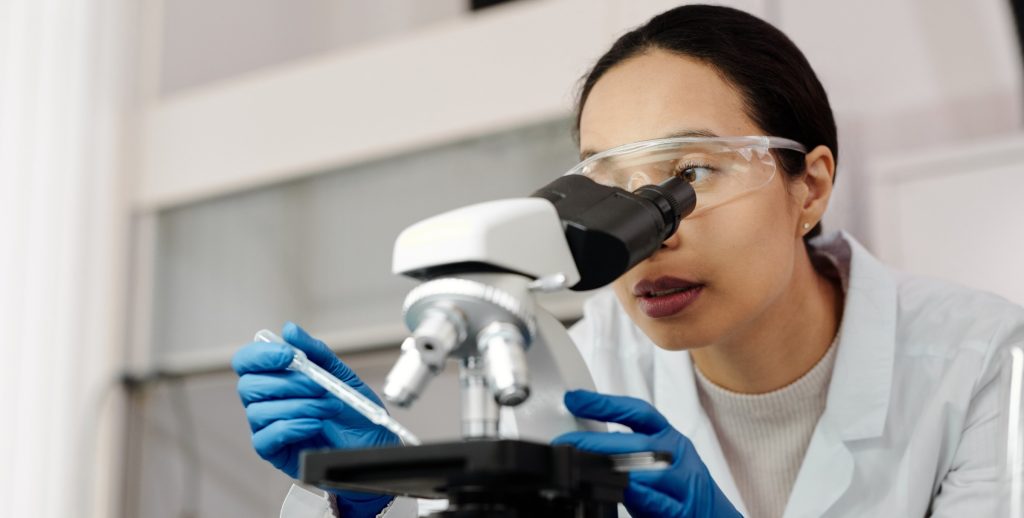This little-known STI can make you more susceptible to HPV
Getting some illnesses can make you more susceptible to getting others.
Diabetes can lead to heart disease. Getting the flu makes you more likely to get pneumonia. High blood pressure is tied to kidney disease.
This is also true in the world of STIs. For example, it’s well-known that having HIV can increase the likelihood of getting other STIs.
But it turns out HIV isn’t the only bad host letting in other nasty infections into your home.
Trichomonas may be the reason why some people have HPV…

Are you worried about STI? Book an appointment at a sexual health clinic near you.
What is Trichomonas?
Trichomonas is a parasitic STI caused by a protozoan called Trichomonas vaginalis. The parasite infects the urinary tract, causing symptoms like unusual discharge, burning during urination, lower abdominal pain, and pain during sex.
Most people don’t even know about Trichomonas, nor that it can be sexually transmitted.
Along with its tendency to create issues with fertility and pelvic inflammatory disease (PID), having Trichomonas may also make you more likely to get HPV…
What is HPV?
The Human Papillomavirus (HPV) is the most common STI in the world, by a wide margin. It’s so common that most people will get an HPV infection in their lifetime.
Most strains of HPV are harmless. Some strains of HPV have been known to cause Genital Warts, small fleshy protuberances that appear on or around the genitals.
However, certain strains of HPV have been linked to certain cancers. 99% of all cervical cancers are caused by a small number of strains of HPV, and increasing research has shown that certain strains of HPV have been linked to cancers in the penis, head, and throat.
However, all strains of HPV predominantly cause no symptoms, and are cleared from the body by the immune system over many years, regardless of whether they are high risk or low risk strains.
Why does having Trichomonas make you more likely to get HPV?
One study conducted in Brazil in 2021 explored the potential connection between Trichomonas and HPV infections.
Researchers recruited women with normal cervixes from community-based cervical cancer screening programs. Gynaecological examinations were conducted. Vaginal and uterine samples were collected for cytological examinations and tested for the presence of Trichomonas and HPV DNA.
Researchers found that Trichomonas infections were associated with more advanced HPV infections in the cervix, along with other cervical abnormalities. Other studies conducted in Finland, China, and Taiwan found similar associations.
While further study is needed in this area, it’s suspected that, upon infection, the Trichomonas parasite releases destructive proteins that reduce the protective mucous layer of the cervix, which can result in micro lesions, enhancing the virulence of a symbiotic HPV infection and therefore the likelihood that it could cause precancerous lesions.
Final thoughts
Our patients need to know the risks of contracting certain infections. While Trichomonas may not be as well-known as other STIs, getting infected can lead to serious health problems if in combination with HPV they leave both untreated.
If you want to get tested for Trichomonas, click the button below to get tested at a sexual health clinic near you.

Don’t leave your sexual health to chance. Get tested for Trichomonas today.
This article has been medically reviewed by Dr. Steve Chapman, 30/10/2024.
Categories
- Abu Dhabi
- Bacterial Vaginosis
- Bahrain
- Blood Tests
- Cancer
- Cervical Cancer
- Chlamydia
- Dubai
- Fertility
- Gardnerella
- Genital Warts
- Gonorrhoea
- Hepatitis A
- Hepatitis B
- Hepatitis C
- Herpes
- HIV (AIDS)
- HIV Testing
- HPV
- Instant Testing
- Kuwait
- Locations
- Middle East
- Mycoplasma
- Oman
- PAP Smear
- Positive STI Results
- Qatar
- Saudi Arabia
- Sex Education
- Sexual Health
- Sexual Health News
- Sexually Transmitted Infections
- STD Symptoms
- STD Tests and Screens
- STI Results
- STI Treatment
- STIs
- Sustainability
- Swab Tests
- Syphilis
- Trichomoniasis
- Uncategorized
- United Arab Emirates
- Ureaplasma
- Urine Tests




